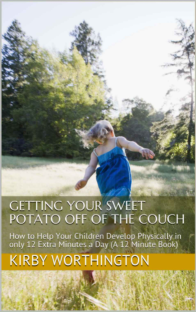If You Want Your Children To Grow As They Should...
 If you want your children to grow as they should,
If you want your children to grow as they should,
give less attention for bad and point out the good.
It’s a simple fact: children do more of whatever they get attention for. This means that if it’s throwing a tantrum, or shouting, or whatever other behavior you want them to change, give less attention to it. And it means that if you point out their good behavior – whether a positive attitude, or listening well, or whatever other behavior you want them to continue – they will most likely increase the frequency of that behavior.
“Do not let any unwholesome talk come out of your mouths, but only what is helpful for building others up according to their needs, that it may benefit those who listen.” There is power in our words. The quote above is a somewhat familiar saying from the Bible (Ephesians 4:29) that reminds us of the importance of our choice of words. Words can be helpful, up-building, and beneficial. And words can hurt. “Unwholesome” isn’t a common word anymore. It may seem old-fashioned. It basically means shameful. And this is something we can get in the habit of doing – being unkind with our words.
Once we’ve said something hurtful, we can’t take it back. We can (and should) apologize and seek forgiveness, but our words are out there and cannot be un-said or un-heard. Take the example of siblings fighting, saying unkind things to each other. One set of parents helped teach their kids that hurtful words cannot be reversed by squeezing out some toothpaste. The children then had to attempt to put the toothpaste back into the tube by using a toothpick. As you can imagine, it was impossible.
Because our words are powerful – whether good words being helpful or bad words being hurtful – our goal for ourselves and our children is to learn to gain control over what we say. Once we can think clearly about what we’re saying before it comes out of our mouths, then we can work on replacing our thoughts that might be shaming or discouraging to the other person. It is important for parents to model this. If we’re asking our children to do it, we need to do it. So let’s be encouraging, not discouraging. “Encouragement” has been defined as putting courage into a person to try to change. On the other hand, “discouragement” can drain out of someone the courage and energy to change.
So, the next time we happen upon a situation that needs correcting, think about how to do this with your words. It is good to point out what needs to be corrected, but we can be kind about it. We can avoid shameful words. (People in general do not try harder to do what is right when they are ashamed.) And we can even think about whether, in general, we are giving our children more attention for their bad choices and actions or for their good ones.
As an important final comment to think about, we should sometimes check in with our kids about what they understand from our words. We can ask, “When I said…, what did you hear?” It is possible to communicate discouragement when intending to encourage them. But this can easily be remedied by talking it out.
For example, this week my daughter was kindly helping with dinner by opening a can of soup for me. When it spilled out over the counter and down my legs, I let out a little squeal of surprise at the wet cold running down me. In no way was I upset, and I calmly proceeded to ask her to get a towel so we could clean up the spill together. She whimpered as she walked away and I knew that I needed to check in with her so she could understand that my reaction was not in anger but simply surprise. I appreciated her help, and this was part of learning about cooking – making messes and cleaning them up. We’re enjoying more time together in the kitchen now that she understands that. And we’re “on the same page” relationally because we talked about what I meant and what she understood.
Related Posts
By accepting you will be accessing a service provided by a third-party external to https://mail.growthandgiggles.com/

